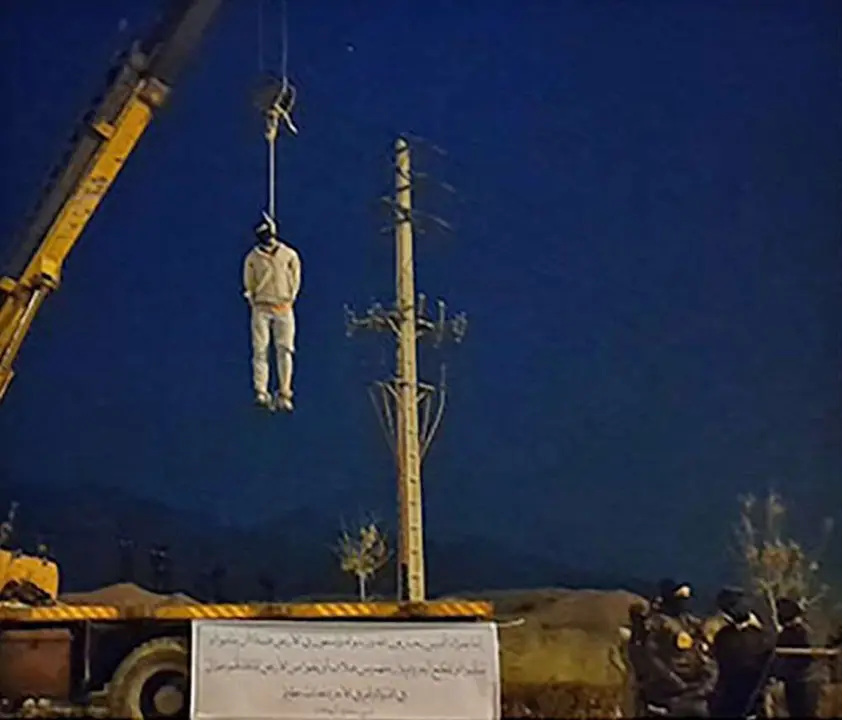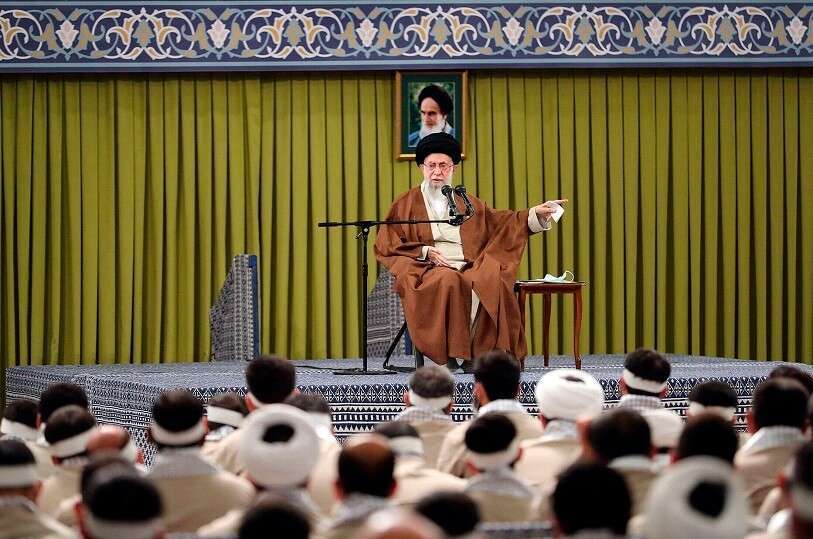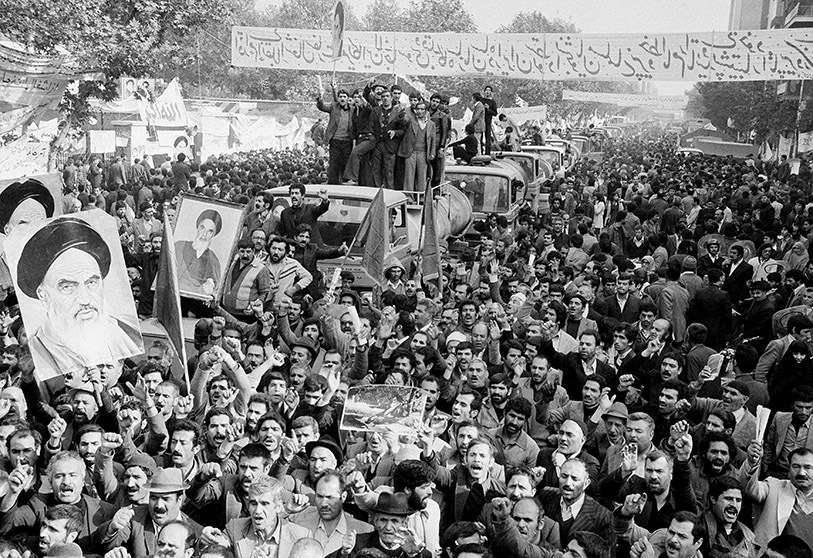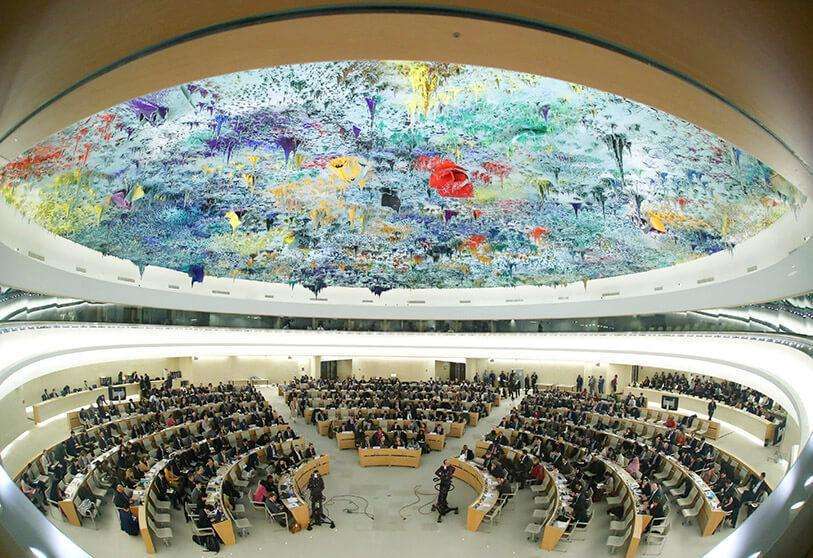In Iran, the right to demonstrate is now punishable by death

Thirteen weeks of protests in a country where human rights are worth as much as wet paper could not have the opposite consequences to those that are taking place. Since the first execution last Thursday, the Iranian government has killed a second women's rights activist in the protests sparked by the death of Mahsa Amini. The demonstrations have become one of the largest popular uprisings of the last decade, with angry Iranians from all walks of life and from almost every corner of the country mounting the biggest challenge to the rulers since the 1979 clerical revolution.
In addition to the list of those convicted, the Iranian judiciary has reported that up to 28 more people have been sentenced to hang for their participation in the demonstrations on charges of provoking "unrest". Among them is Iranian professional footballer Amir Nasr-Azadani, who faces the death penalty in his home country, FIFPRO reported. The Iranjavan player was arrested for publicly defending women's rights and freedoms in his country. So far, at least 458 people have been killed in the crackdown on demonstrations, according to the latest toll from the Norway-based NGO Iran Human Rights (IHR), and at least 15,000 people have been arrested, according to the UN.
"Do not execute" reads a sign on a noose hanging from a footbridge over Niayesh Expressway in Tehran.
— Kian Sharifi (@KianSharifi) December 9, 2022
Iran's execution of Mohsen Shekari yesterday is likely the first of many to come. At least 11 protesters have been sentenced to death.pic.twitter.com/DNw279F616
According to Amnesty International, Iran is "preparing to execute" Mahan Sadrat, 22, following a "grossly unfair" speedy trial during which he was found guilty of having pulled a knife at the demonstrations, accusations he denied in court. Sentenced to death on 3 November, he was transferred on Saturday to Rajai Shahr prison in Karaj, near Tehran, "raising fears of imminent execution", the UK-based NGO warned. According to IHR, this conviction was upheld by the Supreme Court, making it likely to be carried out.
Amnesty International also warned that the life of another young man, Sahand Nurmohammadzadeh, was in danger after he was sentenced to death on 6 November for "pulling down motorway railings and burning rubbish and tyres". Amnesty and IHR also referred to the case of Hamid Gharehasanlu, a doctor sentenced to death, who they said was tortured in detention and whose wife was forced to testify against him. For IHR director Mahmood Amiry-Moghaddam, the international response needs to be "stronger than ever" to crack down on such liquidations. Several Western countries, as well as the European Union and the UN, condemned the execution of Mohsen Shekari.

The fact that it is only 23 days from conviction to sentencing reflects the plight of the Islamic Republic's head of state. Ali Khamenei is increasingly cornered. There is a growing movement among Shia clerics who oppose the new round of executions against protesters. Murtaza Moqtadaei, a member of the Seminary Teachers Association in Qom said that "if someone has the right to protest about the current situation, and agents prevent him from demonstrating, and when he wants to defend his right, we call him a warrior, he should not be sentenced to death".
Religious authority Mohammad Reza Rahmat, a member of Ruhollah Khomeini's Antiquities Research Bureau and one of his students, declared that the verdict for crimes such as intimidating people, closing the street and injuring someone is not "execution", while considering that "these sentences are political". Mohsen Kadivar, another member of the cleric, identified Khamenei as the main person responsible for issuing and carrying out the death sentences. He said that "he put pressure on the leaders of the judiciary to issue death sentences against protesters and, in any case, there is no doubt who is behind the executions".

For his part, the leader of the Sunnis in Iran, Mawlawi Abd al-Hamid, called on the ruling authorities in his country to stop the executions against the protesters, stressing that "the execution increases hatred towards the ruling authorities and has nothing but inflame the anger of the nation". Mawlawi Abd al-Hamid, the imam of the city of Zahedan in southeastern Iran, said in a tweet on his Twitter account: "The shooting and indiscriminate repression are the only result of the wrath of Almighty God, the hatred of the people and the kindling of the fire of the nation's anger".
International authorities, including the EU, "will take all measures we can to support the young women and the peaceful demonstrators," said Josep Borrell, the EU bloc's foreign policy chief. German Foreign Minister Annalena Baerbock said: "With this sanctions package, we are targeting in particular those responsible for executions, violence against innocent people, these are especially the Revolutionary Guards". But for IHR director Mahmood Amiry-Moghaddam, the international response needs to be "stronger than ever" to prevent these executions.

Iran is the country, after China, that carries out the most death sentences according to Amnesty International. In 2022, more than 500 have already been executed. In addition, Amnesty International has denounced that many of the 2,000 accused in the protests are facing death sentences in what it called "sham trials designed to intimidate those involved in the popular uprising that has shaken Iran".








